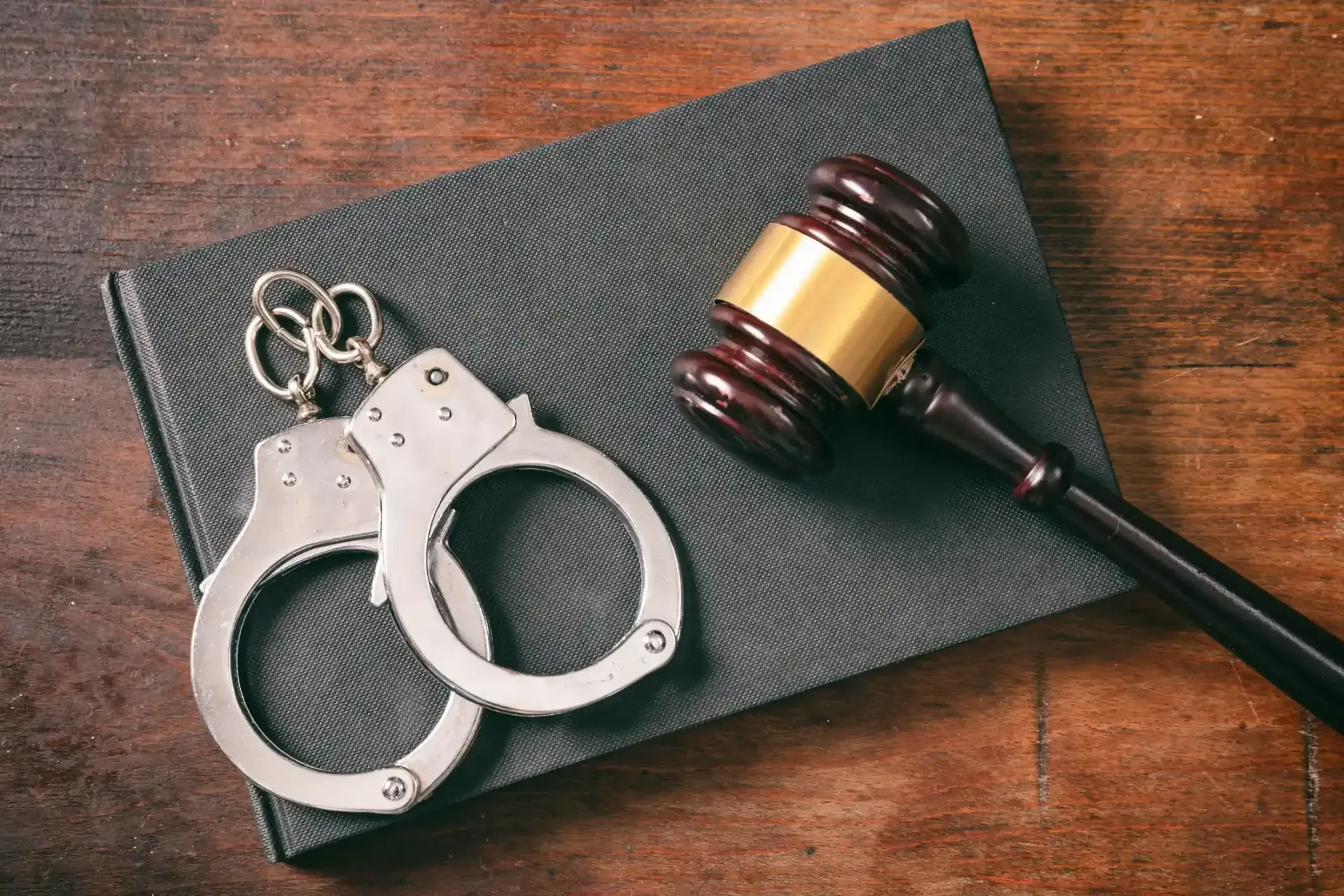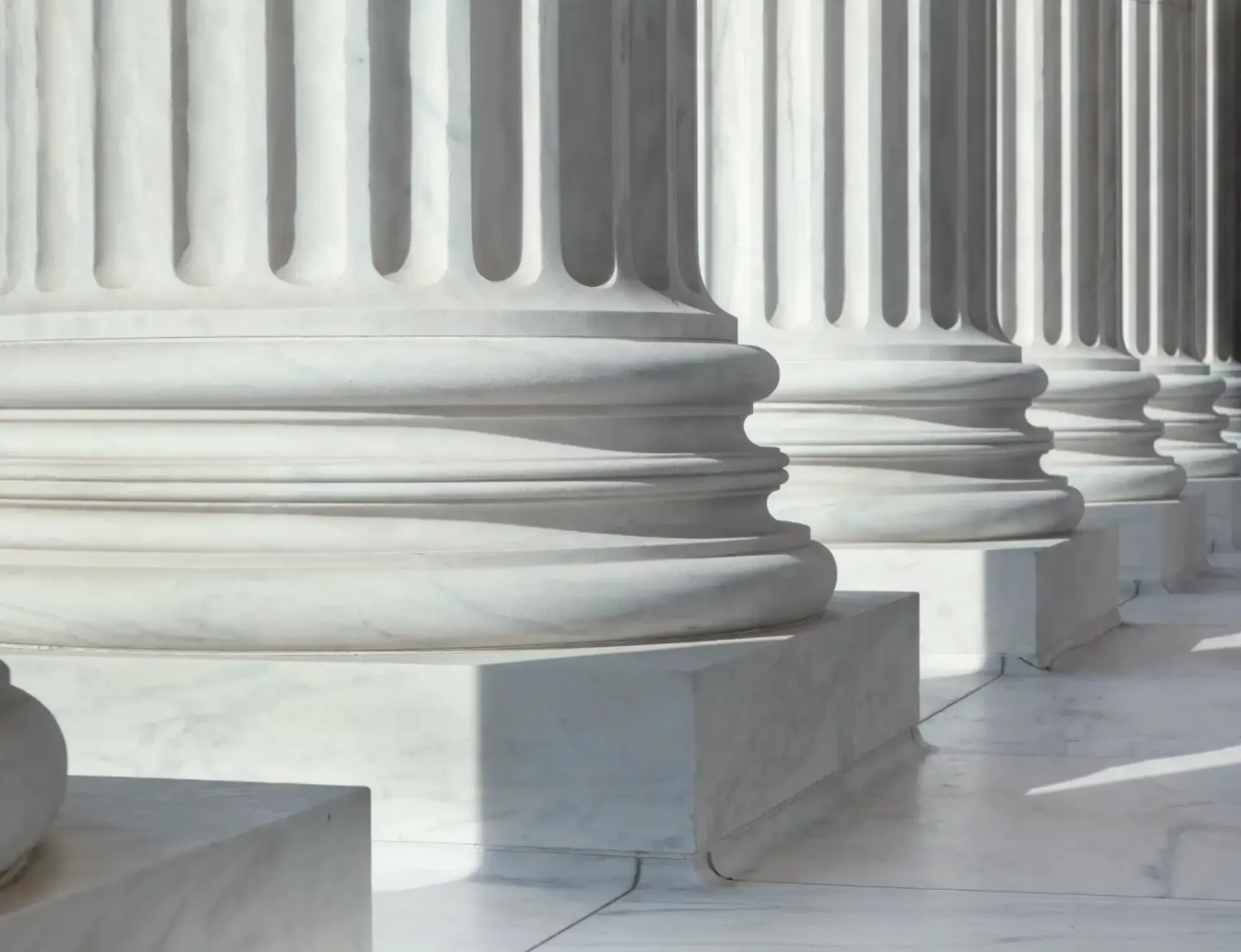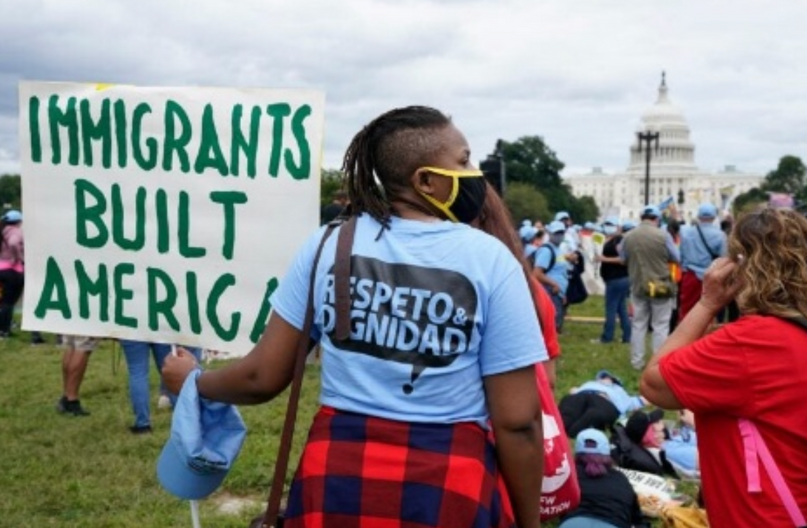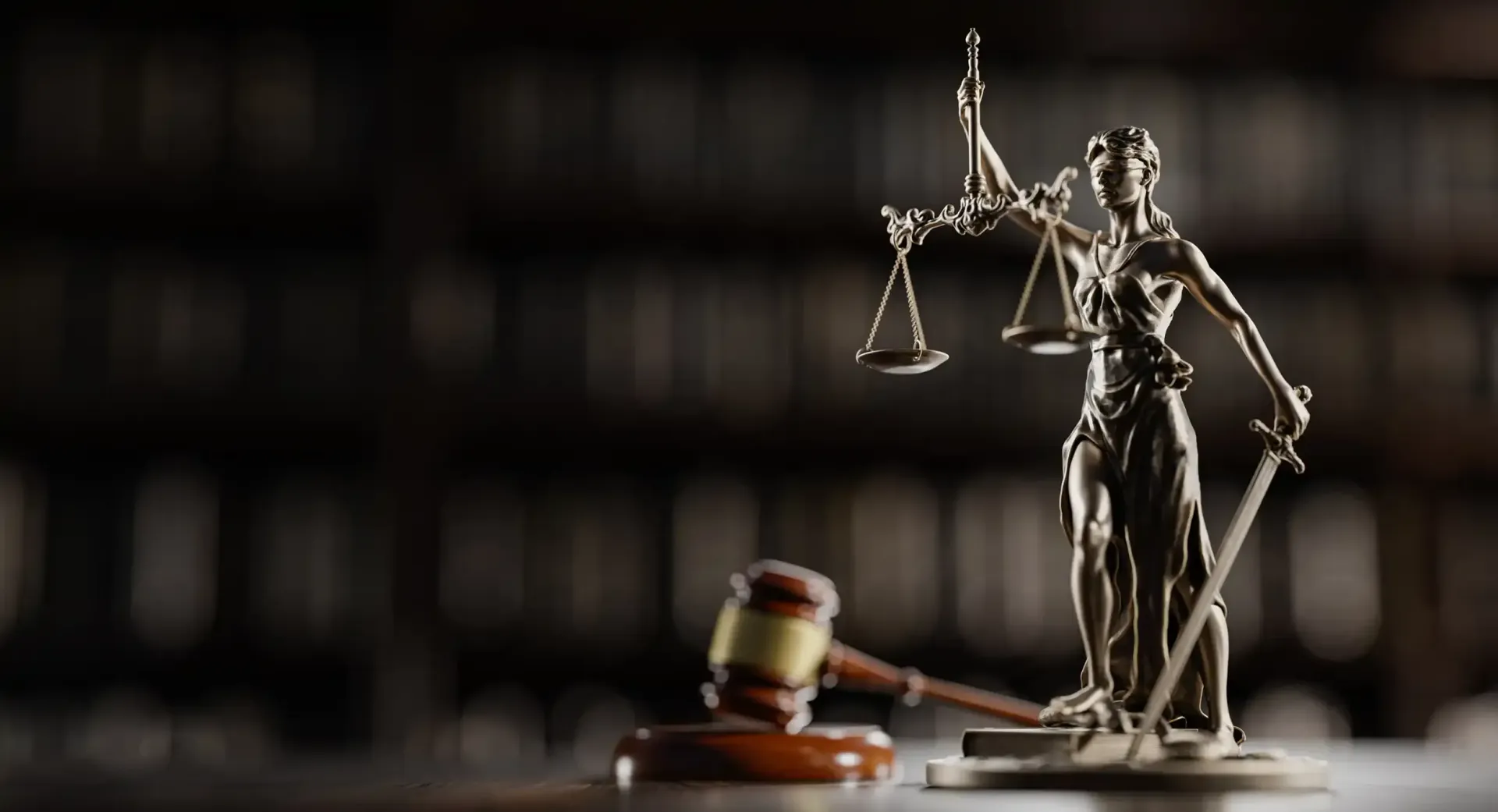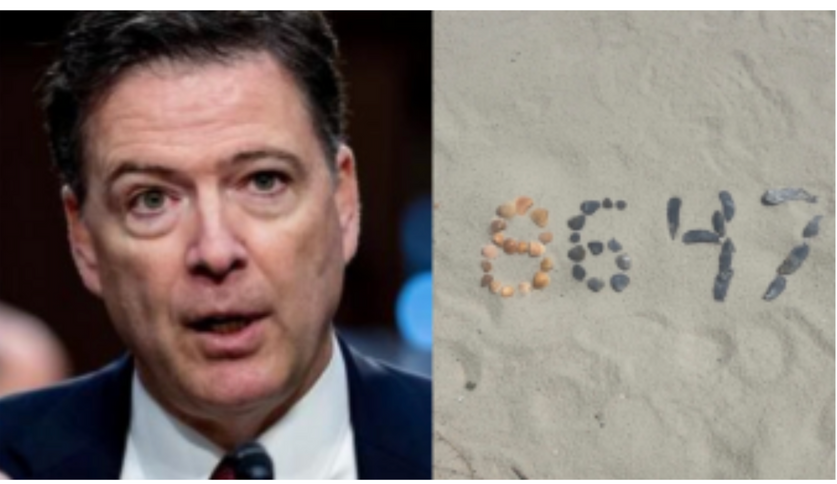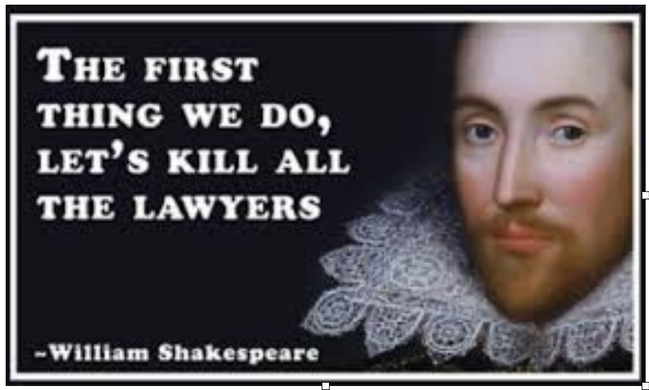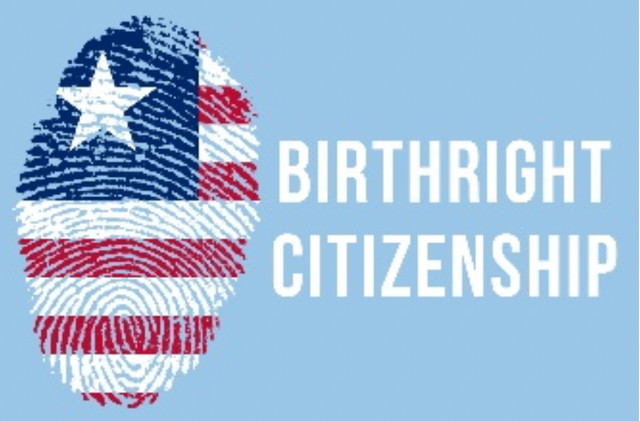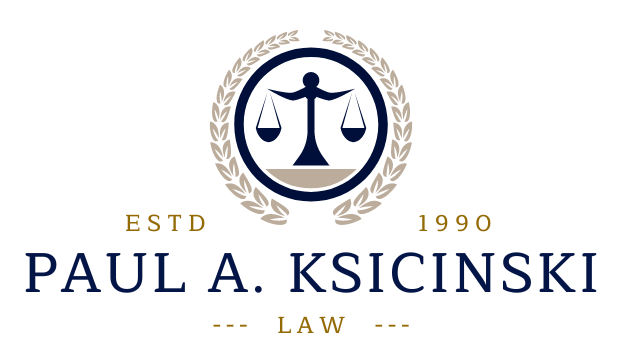LITTLE V. LLANO COUNTY: THE FIFTH CIRCUIT ALLOWS LIBRARIES TO REMOVE BOOKS BASED ON VIEWPOINT OR CONTENT
LITTLE V. LLANO COUNTY: THE FIFTH CIRCUIT ALLOWS LIBRARIES TO REMOVE BOOKS BASED ON VIEWPOINT OR CONTENT
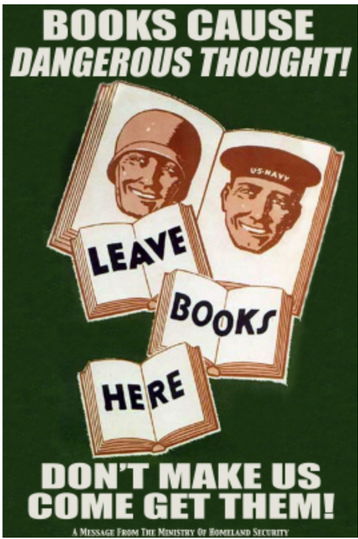
"A book is a loaded gun in the house next door. Burn it. Take the shot from the weapon... Who knows who might be the target of the well-read man?" Ray Bradbury, Fahrenheit 451 p. 58 in 50th ed., p. 56 in 60th ed.
This quote from Fahrenheit 451 about reading books is powerful. Literature is the record of human experience and people's connection to the ideas and emotions of the past, experiences to which others can relate as well as learn. Without books, there is no past, no history. People are isolated in their thoughts in the society of Fahrenheit 451 with nothing by which to measure life.
When an expression is disgusting and goes against a majority viewpoint is when First Amendment protections are most needed. We do not need the First Amendment to protect popular or majority viewpoints, we need First Amendment protections to protect the disgusting or even offensive speech. In 2013, Secretary of State John Kerry offered a defense of freedom of speech and thought in the United States by stating to German students that in America "you have a right to be stupid if you want to be." He continued, "And we tolerate it. We somehow make it through that. Now, I think that's a virtue. I think that's something worth fighting for," he added. "The important thing is to have the tolerance to say, you know, you can have a different point of view." John Kerry To German Students: Americans Have 'Right To Be Stupid' (NPR 2013) https://www.npr.org/sections/thetwo-way/2013/02/26/172980860/john-kerry-to-german-students-americans-have-right-to-be-stupid Justice Frankfurter has said, "[o]ne of the prerogatives of American citizenship is the … freedom to speak foolishly and without moderation." Baumgartner v. United States, 322 U.S. 665, 673-674 (1944); Cohen v. California 403 U.S. 15 (1971) (fuck as constitutionally protected speech)
This is because an important function of speech is to invite dispute. Terminiello v. City of Chicago, 337 U.S. 1, 4 (1949). The Supreme Court has asserted that, "we may and do assume that freedom of speech . . . which [is] protected by the First Amendment from abridgment by Congress . . . [is] among the fundamental personal rights and 'liberties.'" Gitlow v. New York, 268 U.S. 652, 666 (1925).
In Little v. Llano County, library patrons in 2022 sued Llano County, Texas, alleging that the removal of 17 books due to their "content on race, gender and sexuality as well as some children's books that contained nudity" from the public library's shelves violated their First Amendment right to receive information. The Fifth Circuit, in a 10-7 decision, found the federal district court and appellate court rulings erred. The Little v. Llano County held first, plaintiffs cannot invoke a right to receive information to challenge a library's removal of books. Second, a library's collection decisions are government speech and therefore not subject to Free Speech challenge. Little v. Llano County, No. 23-50224 (5TH Cir. May 23, 2025) (en banc), chrome extension://efaidnbmnnnibpcajpcglclefindmkaj/https://reason.com/wp-content/uploads/2025/05/LittlevLLanoCountyEnBancOpinion.pdf Contra, Pratt v. Indep. Sch. Dist. No. 831, 670 F.2d 771 (8th Cir. 1982) (government speech doctrine inapplicable to book removal; government’s discretion to “determine the curriculum that is most suitable for students” did not provide the state with “an absolute right to remove materials.” Id. at 775–76)
This means, according to the Fifth Circuit, a Texas public library did not violate patrons' right to free speech by removing books due to their content. This holding is miraculous given the abundance of these authorities given the authorities against such a position.
Here are some particularly disgusting or offensive speech that is nevertheless protected speech. In Snyder v. Phelps 562 U.S. 443, 131 S. Ct. 1207 (2011). The Westboro Baptist Church believe that God punishes the United States for its tolerance of homosexuality, particularly within the military. Mr. Phelps therefore picketed at military funerals of veterans like Lance Corporal Matthew Snyder, who was killed in the line of duty in Iraq in 2006. Westboro picketed Matthew Snyder's funeral and displayed signs on public land about 1,000 feet from where the funeral was being held that stated, for instance, "God Hates the USA/Thank God for 9/11," "Thank God for Dead Soldiers," and "Don't Pray for the USA." "God Hates Fags", and "You're Going to Hell", among others. Phelps was arrested and argued that his speech (the picketing and the signs) was protected under the Free Speech Clause of the First Amendment to the Constitution. In an 8–1 decision delivered by Chief Justice John Roberts, the Supreme Court held that Phelps and his followers were "speaking" on matters of public concern on public property and thus, were entitled to protection under the First Amendment. Likewise, with Rapkin she was clearly responding to an issue of public concern on public property so that her action to communicate her disagreement with the protestors entitled to protection under the First Amendment. The Court held that speech made in a public place on a matter of public concern is protected speech, even if the speech is viewed as offensive or disgusting. The First Amendment provides special protection to public issues because it serves "the principle that debate on public issues should be uninhibited, robust, and wide-open.” Id. at 1215, quoting New York Times Co. v. Sullivan, 376 U.S. 254, 270, 84 S.Ct. 710, 11 L.Ed.2d 686 (1964). “That is because "speech concerning public affairs is more than self-expression; it is the essence of self-government." Id., quoting Garrison v. Louisiana, 379 U.S. 64, 74-75, 85 S.Ct. 209, 13 L.Ed.2d 125 (1964).
But what about racist expressions? Racist speech, like hate speech, can be protected speech. In Matal v. Tam, 582 U.S. 218, 137 S. Ct. 1744 (2017) (viewpoint-based discriminatory because the government chooses to deny trademark protection to a mark always because of the message that the mark conveys), Justice Samuel Alito (for four justices) explained
[The idea that the government may restrict] speech expressing ideas that offend … strikes at the heart of the First Amendment. Speech that demeans on the basis of race, ethnicity, gender, religion, age, disability, or any other similar ground is hateful; but the proudest boast of our free speech jurisprudence is that we protect the freedom to express “the thought that we hate.”
Justice Anthony Kennedy wrote separately, also for four justices, but on this point the opinions agreed:
A law found to discriminate based on viewpoint is an “egregious form of content discrimination,” which is “presumptively unconstitutional.” … A law that can be directed against speech found offensive to some portion of the public can be turned against minority and dissenting views to the detriment of all. The First Amendment does not entrust that power to the government’s benevolence. Instead, our reliance must be on the substantial safeguards of free and open discussion in a democratic society.
That is why even racists, like the Nazis, must be allowed free speech. National Socialist Party of America v. Village of Skokie, 432 U.S. 43 (1977). is a United States Supreme Court case dealing with freedom of speech and freedom of assembly of the Nazi Party parading through predominantly Jewish Skoie. Ill. Collin v. Smith, 578 F.2d 1197 (7th Cir. 1978). and Smith v. Collin. 439 U.S. 916 (1978) (denying certiorari). These cases clearly demonstrate the answer to racist speech is not censorship but voices of reason raised against racism.
Likewise, public libraries exist to provide the public with free access to books, information, and ideas and are anchors against censorship. It has been already “well established that the Constitution protects the right to receive information and ideas.” Stanley v. Georgia, 394 U.S. 557, 564 (1969). In Board of Education Island Trees Union Free School District No. 26 v. Pico, 457 U.S. 853 (1982), the Supreme Court explicitly recognized that public school students’ First Amendment “right to receive ideas is a necessary predicate to the recipient's”—that is, the student’s—“meaningful exercise of his own rights of speech, press, and political freedom.” Id. at 867. The Court held that it had “long recognized certain constitutional limits upon the power of the State to control even the curriculum and classroom.” Id. at 861. Pratt vindicated students’ First Amendment right to receive information after a film and its commentary were removed from the curriculum to protect “religious and family values.” 670 F.2d at 773. Pratt held that 1) students have “a right to be free from official conduct that was intended to suppress the ideas expressed in these films,” id. at 776, and 2) to pass constitutional muster, “the board must establish that a substantial and reasonable governmental interest exists for interfering with the students’ right to receive information.” Id. at 777.
John Milton penned Areopagitica (1644) where he used what we now call "the slippery slope" argument that, once one censors some books, one should logically do the same with all books. But why stop there, since one could go on to all of the other kinds of expression, including pamphlets, songs and the like? That would require a large army of censors engaged in very tedious tasks, which would likely mean that only mediocre people would be drawn to the jobs. These would be especially fallible and corruptible, or "ignorant, imperious, and remiss, or basely pecuniary." Fools would be thus set up to judge the books of those often far wiser than themselves. The real danger is that censorship may leave alone the bad books and suppress the good books: "As good almost kill a man as kill a good book...he who destroys a good book, kills reason itself, kills the image of God."
Instead, libraries offer people a universe of materials to explore, and enable patrons to make up their own minds about which are worthwhile. In many ways, they are the physical embodiment of the First Amendment principle that, “[f]rom the multitude of competing offerings the public,” not the government, “will pick and choose.” Hannegan v. Esquire, Inc., 327 U.S. 146, 158 (1946). Cases that establish and apply First Amendment limitations on (1) the removal of books from school libraries, (2) government programs that necessarily pick and choose among private speech, and (3) nonpublic forums all hold that government officials cannot engage in “invidious viewpoint discrimination” that seeks to “drive certain ideas or viewpoints from the marketplace.” Nat’l Endowment for the Arts v. Finley, 524 U.S. 569, 587 (1998) (marks and citation omitted). Government actors may not “discriminate invidiously . . . in such a way as to aim at the suppression of dangerous ideas.” Regan v. Tax’n With Representation of Wash., 461 U.S. 540, 548 (1983) (tax exemptions) (marks and citation omitted).
Nor can a library silence ideas in an effort to “prescribe what shall be orthodox in politics, nationalism, religion, or other matters of opinion.” Board of Education, Island Trees Union Free School District No. 26 v. Pico, 457 U.S. 853, 872 (1982) (plurality op.) (quoting West Virginia Bd. of Educ. v. Barnette, 319 U.S. 624, 642 (1943)). Justice Blackmun agreed that the Supreme Court’s cases “command” a First Amendment limitation on why government officials may remove a library book. Id. at 878–79 (Blackmun, J., concurring). Justice White agreed that the case should be remanded for further fact-finding about the school board’s specific reasons in the case—an exercise that would have been pointless if no facts could have established a violation of the First Amendment. Id. at 883–84. And Justice Rehnquist, joined by Chief Justice Burger and Justice Powell in dissent, “cheerfully concede[d]” that “[o]ur Constitution does not permit the official suppression of ideas,” including in libraries. Id. at 907 (Rehnquist, J., dissenting (quoting plurality op.)) (emphasis in original). Thus, eight of the justices in Pico agreed that library book removals can violate the First Amendment.
Thus, officials cannot remove a “novel depicting a fictional romantic relationship between two teenage girls,” Case v. Unified Sch. Dist. No. 233, 908 F. Supp. 864, 867 (D. Kan. 1995), because they believed the book “promoted or glorified” a “lifestyle” they viewed as sinful and abnormal. Id. at 871. See also, Sund v. City of Wichita Falls, Tex., 121 F. Supp. 2d 530, 548 (N.D. Tex. 2000) (holding that book removals from public library shelves must undergo First Amendment scrutiny, which applies with “even greater force” than in the school library context). That is why when considering restrictions on access to the ideas contained in public libraries courts have held the restriction must withstand First Amendment scrutiny. See Bd. of Education v. Barnette, 319 U.S. 624,633 (1943).(“[i]t is now a commonplace that censorship or suppression of expression of opinion is tolerated by our Constitution only when the expression presents a clear and present danger of action of a kind the State is empowered to prevent and punish.”); Kreimer v. Bureau of Police for Town of Morristown, 958 F.2d 1242, 1251 (3d Cir. 1992); Neinast v. Bd. of Trs. of the Columbus Metro. Libr., 346 F.3d 585, 591 (6th Cir.2003); Doe v. City of Albuquerque, 667 F.3d 1111, 1128 (10th Cir. 2012).
Finally, it is sometimes argued by certain groups that parental rights allow for certain books to be banned or removed despite the First Amendment. Shifting the purportedly parental rights issue of book-banning to a free speech issue can draw an imperfect parallel from the Brown v. Entertainment Merchants Ass’n, 564 U.S. 786 (2011). There, California passed a statute attempting to restrict children’s access to violent video games. Id. at 789. Justice Scalia’s majority opinion noted that “(1) addressing a serious social problem and (2) helping concerned parents control their children . . . are [both] legitimate, but when they affect First Amendment rights they must be pursued by means that are neither seriously under-inclusive nor seriously overinclusive.” Id. at 805. Ultimately, in Brown, free speech issues guided the majority rather than parental rights. In book banning cases, First Amendment concerns should ultimately outweigh any parental rights issues that get raised.
In a forceful dissent in Little v. Llano County,, Judge Stephen Higginson wrote:
The free exchange of ideas "lies at the foundation of free government by free men." As Thomas Jefferson observed, "wherever the people are well informed they can be trusted with their own government." {George Washington made the same point more starkly: "[T]he freedom of Speech may be taken away, and, dumb & silent we may be led, like sheep, to the Slaughter."} Public libraries have long kept the people well informed by giving them access to works expressing a broad range of information and ideas. But this case concerns the politically motivated removal of books from the Llano County public library system by government officials in order to deny public access to disfavored ideas. In an effort to ratify this official abridgment of free speech, the majority overturns decades of settled First Amendment law, disparaging its free speech protections as a "nightmare" to apply.
Because the majority forsakes core First Amendment principles and controlling Supreme Court law, I dissent….
In sum, I would continue to respect the Supreme Court's judgment in Pico, as we have for thirty years since Campbell (Campbell v. St. Tammany Par. Sch. Bd., 64 F.3d 184 (5th Cir. 1995)), and would hold that the district court here did not clearly err in finding that Defendants' substantial purpose likely was to suppress information and ideas deemed inappropriate or offensive. Thus far, the pre-trial evidence in the record overwhelmingly supports the district court's preliminary conclusion that Director Milum, Judge Cunningham, and Commissioner Moss adopted the motivation of Wallace, Wells, Schneider, and Baskin (who thereafter joined the reconstituted and exclusionary Library Advisory Board), and therefore, that all Defendants were likely motivated by
a desire to suppress fellow citizens' access to the ideas contained in the seventeen books at issue. Consequently, applying the Pico–Campbell standard, we should neither confirm nor nullify a First Amendment violation, but rather entrust our district judge colleague to resolve facts at trial, informing us all, and especially the citizens and officials of Llano County.
More broadly, the logic of the Supreme Court's school library decision in Pico—that the government may not remove library books with the purpose of denying access to disfavored ideas—applies with even greater force to public libraries, where the government has no inculcating role over its sovereign, the people. The First Amendment, with the high Court as its sentinel, protects the right of the people to be informed because, as the Framers knew, only an informed and engaged people can sustain self-governance. Public libraries represent the best of that simple but lofty goal. As spaces "designed for freewheeling inquiry," they democratize access to a broad range of often-contradictory ideas and provide fertile ground for our minds to grow. More than anything, public libraries offer every one of us the tools to educate and entertain ourselves, to embrace or reject new ideas, and, above all, to engage and challenge our minds.
As I began this opinion with the words of one President, I will close with the words of another. In 1953, when our country was in the throes of McCarthyism, President Eisenhower addressed Dartmouth College's graduating class:
Look at your country. Here is a country of which we are proud … But this country is a long way from perfection—a long way. We have the disgrace of racial discrimination, or we have prejudice against people because of their religion. We have crime on the docks. We have not had the courage to uproot these things, although we know they are wrong…
Don't join the book burners. Don't think you are going to conceal faults by concealing evidence that they ever existed. Don't be afraid to go in your library and read every book, as long as that document does not offend our own ideas of decency…
How will we defeat communism unless we know what it is, and what it teaches, and why does it have such an appeal for men, why are so many people swearing allegiance to it? …
[W]e have got to fight it with something better, not try to conceal the thinking of our own people. They are part of America. And even if they think ideas that are contrary to ours, their right to say them, their right to record them, and their right to have them at places where they are accessible to others is unquestioned, or it isn't America.
Because I would not have our court "join the book burners," I dissent.
